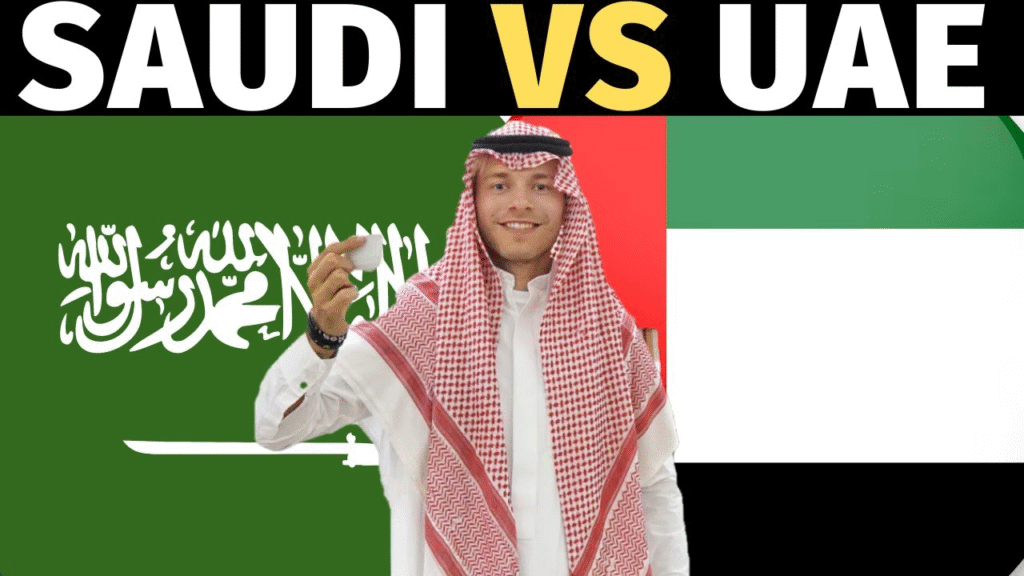The relationship between Dubai and Saudi Arabia often raises questions, particularly regarding their cultural similarities and political differences. While both are prominent regions in the Middle East, they each possess unique identities shaped by their histories, economies, and social structures. Understanding these nuances can clarify why many people mistakenly think of Dubai as part of Saudi Arabia.
Cultural Overlaps
One of the most noticeable aspects of Dubai and Saudi Arabia is their shared cultural background. Both regions predominantly practice Islam, which heavily influences daily life, holidays, and social norms. Visitors to either location will encounter traditional customs, halal food, and a strong emphasis on family values. The importance of hospitality, respect for elders, and community ties are deeply rooted in both cultures.
In addition to these shared values, the Arabic language is a common thread that unites the two regions. Arabic is the official language in both Dubai and Saudi Arabia, serving as a vital means of communication and cultural expression. This linguistic connection fosters a sense of familiarity and shared identity among the Arab population.
However, despite these cultural overlaps, Dubai stands out for its more cosmopolitan and liberal atmosphere. The city attracts a diverse population from around the world, leading to a vibrant mix of cultures, languages, and lifestyles. This diversity is evident in Dubai’s dining options, entertainment venues, and annual festivals, which showcase a variety of cultural expressions.
For instance, Dubai hosts events like the Dubai Shopping Festival and Dubai Food Festival, celebrating not only local Emirati culture but also international influences. Such events draw participants and visitors from various backgrounds, highlighting the city’s role as a cultural melting pot.
In contrast, Saudi Arabia has historically adhered to more conservative interpretations of Islamic law. While recent years have seen some relaxation of restrictions, the country is still known for its traditional values. Social practices in Saudi Arabia tend to be more conservative, with dress codes and public behavior reflecting a commitment to Islamic guidelines.
This divergence in cultural expression can lead to misconceptions about the two regions, as people may assume they share the same level of social openness. While both places celebrate Islamic traditions, Dubai’s international atmosphere allows for a broader range of cultural expressions, leading to a more vibrant and varied social landscape.
Economic Differences
Economically, Dubai and Saudi Arabia are also distinct. Saudi Arabia’s economy has long been dominated by oil, leading to significant wealth and influence. The country is one of the largest oil producers in the world and has utilized its oil revenues to develop infrastructure, healthcare, and education.
In recent years, however, Saudi Arabia has recognized the need to diversify its economy, particularly through its Vision 2030 initiative. This ambitious plan aims to reduce the country’s dependence on oil by investing in non-oil sectors such as tourism, entertainment, and technology. The government is actively promoting initiatives that attract foreign investment and enhance the overall business environment.
On the other hand, Dubai has pursued diversification for decades. The emirate has invested heavily in sectors such as tourism, real estate, and finance, establishing itself as a global business hub. Dubai’s economy is characterized by its dynamic and varied sectors, making it resilient to fluctuations in oil prices.
Dubai’s free trade zones and business-friendly policies attract international companies, making it a popular destination for expatriates and investors. The city’s strategic location between Europe, Asia, and Africa further enhances its appeal as a trade and logistics hub.
While both regions seek economic growth, their approaches and current stages of development differ significantly. Dubai’s established status as a global business center contrasts with Saudi Arabia’s ongoing transformation and diversification efforts.
Governance Structures
The governance of Dubai and Saudi Arabia is another area where they diverge. Dubai is one of seven emirates that make up the United Arab Emirates (UAE), each with its own ruler. This federal system grants Dubai a level of autonomy, allowing it to establish its own laws and regulations. The ruler of Dubai has significant power within the emirate, contributing to its unique governance style.
In contrast, Saudi Arabia is governed as a unitary absolute monarchy, where the king has overarching authority over the entire country. This difference in governance can lead to varying social policies, legal frameworks, and political dynamics, further distinguishing the two regions.
In Saudi Arabia, the king’s decisions significantly influence all aspects of life, from social norms to economic policies. While recent reforms have aimed to modernize the country, the monarchy remains firmly in control, shaping the nation’s direction.
Dubai’s governance allows for a more flexible and adaptive approach to laws and regulations. The emirate has been able to implement policies that promote tourism, business development, and cultural events, contributing to its rapid growth and global recognition.
Misconceptions and Clarifications
The question of whether “is Dubai Saudi Arabia” is a common misconception. Despite their geographical proximity and cultural similarities, Dubai is an independent city within the UAE, while Saudi Arabia is a separate nation. This distinction is crucial for understanding the unique identities of both regions.
The confusion often arises due to the close cultural ties and shared Islamic practices between the two. Additionally, media portrayals that generalize the Middle East can contribute to misunderstandings. By recognizing the distinctions between Dubai and Saudi Arabia, we can appreciate the diversity that exists within the region.
Moreover, the presence of expatriates in Dubai, who come from various countries and cultures, adds another layer of complexity. This mix of cultures can lead to a perception that Dubai is more representative of the broader Middle Eastern culture, which can blur the lines between it and Saudi Arabia.
Conclusion
In summary, Dubai and Saudi Arabia, while sharing cultural roots, are distinct entities with unique identities. The contrasts in governance, economic strategies, and social structures highlight the complexities of their relationship. Understanding these differences helps clarify the common misconceptions surrounding the question of whether Dubai is part of Saudi Arabia.
By appreciating the individuality of both regions, we can celebrate the rich tapestry of cultures and traditions that define the Middle East. The diversity in lifestyles, economic opportunities, and governance styles between Dubai and Saudi Arabia underscores the importance of recognizing each region’s unique contributions to the broader narrative of the Middle East.




